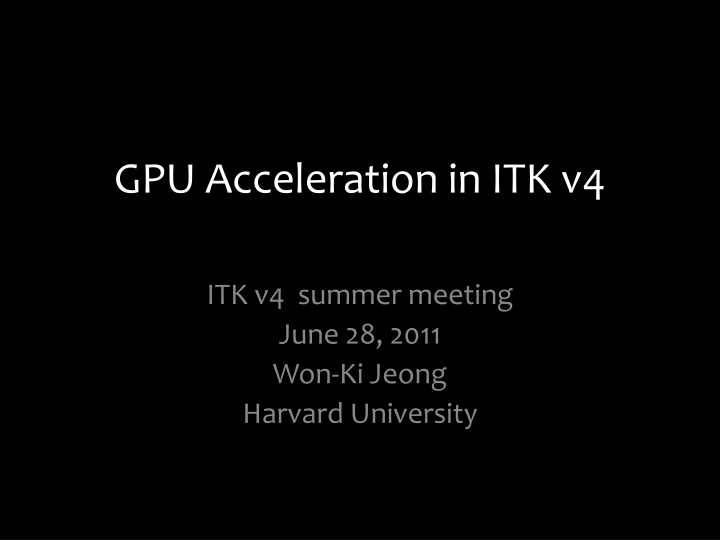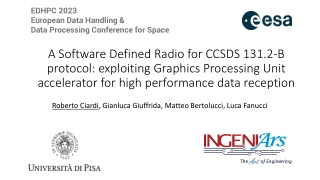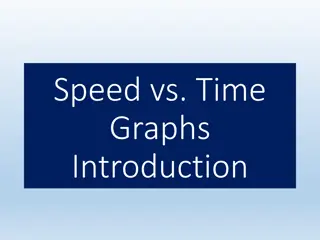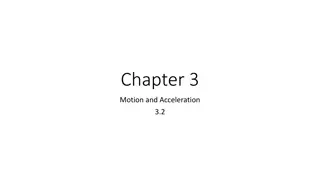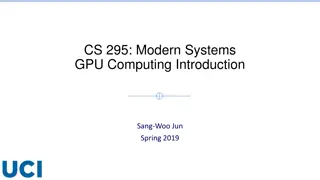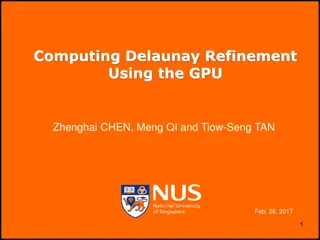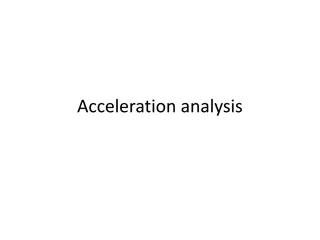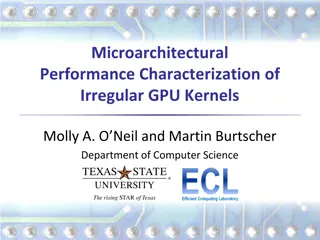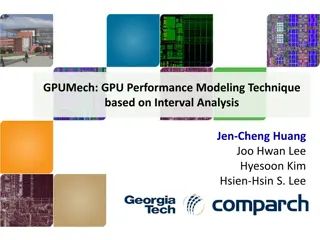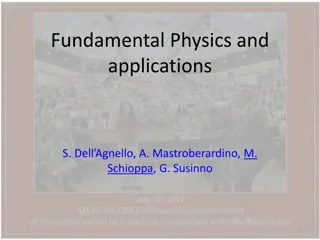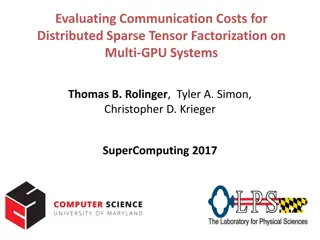GPU Acceleration in ITK v4: Overview and Implementation
This presentation discusses the implementation of GPU acceleration in ITK v4, focusing on providing a high-level GPU abstraction, transparent resource management, code development status, and GPU core classes. Goals include speeding up certain types of problems and managing memory effectively.
Download Presentation

Please find below an Image/Link to download the presentation.
The content on the website is provided AS IS for your information and personal use only. It may not be sold, licensed, or shared on other websites without obtaining consent from the author.If you encounter any issues during the download, it is possible that the publisher has removed the file from their server.
You are allowed to download the files provided on this website for personal or commercial use, subject to the condition that they are used lawfully. All files are the property of their respective owners.
The content on the website is provided AS IS for your information and personal use only. It may not be sold, licensed, or shared on other websites without obtaining consent from the author.
E N D
Presentation Transcript
GPU Acceleration in ITK v4 ITK v4 summer meeting June 28, 2011 Won-Ki Jeong Harvard University
Overview Introduction Current status Examples Future work 2
GPU Acceleration GPU as a fast co-processor Massively parallel Huge speed up for certain types of problem Physically independent system Problems Memory management Process management Implementation 3
Goals Provide high-level GPU abstraction GPU resource management Transparent to existing ITK code Pipeline and object factory supports Basic CMake setup GPU module 4
Status 28 new GPU classes GPU image GPU manager classes GPU filter base classes 6 example GPU image filters Gradient anisotropic diffusion Demons registration 5
Code Development Github (most recent version) https://graphor@github.com/graphor/ITK.git Branch: GPU-Alpha Gerrit http://review.source.kitware.com/#change,1923 Waiting for reviewing 6
CMake Setup Enabling GPU module ITK_USE_GPU Module_ITK-GPUCommon OpenCL source files will be copied to ${ITK_BINARY_DIR}/bin/OpenCL ${CMAKE_CURRENT_BINARY_DIR}/OpenCL 7
Naming Convention File itkGPU*** ex) itkMeanImageFilter -> itkGPUMeanImageFilter Class GPU*** ex) MeanImageFilter -> GPUMeanImageFilter Method GPU*** ex) GenerateData() -> GPUGenerateData() 8
GPU Core Classes GPUContextManager Manage context and command queues GPUKernelManager Load, compile, run GPU code GPUDataManager Data container for GPU GPUImageDataManager 9
GPU Image Class Derived from itk::Image Compatible to existing ITK filters GPUImageDataManager as a member Separate GPU implementation from Image class Graft(const GPUDataManager *) Implicit(automatic) memory synchronization Dirty flags Time stamp (Modified()) 10
GPU Filter Classes GPUDiscreteGaussianImageFilter GPUImageToImageFilter GPUNeighborhoodOperatorImageFilter GPUBoxImageFilter GPUMeanImageFilter GPUInPlaceImageFilter GPUFiniteDifferenceImageFilter GPUUnaryFunctorImageFilter GPUBinaryThresholdImageFilter GPUDenseFiniteDifferenceImageFilter GPUPDEDeformableRegistrationFilter GPUAnisotropicDiffusionImageFilter GPUDemonsRegistrationFilter GPUGradientAnisotropicDiffusionImageFilter 11
GPU Functor/Function Classes GPUFunctorBase GPUFiniteDifferenceFunction GPUBinaryThreshold GPUAnisotropicDiffusionFunction GPUPDEDeformableRegistrationFunction GPUScalarAnisotropicDiffusionFunction GPUDemonsRegistrationFunction GPUGradiendNDAnisotropicDiffusionFunction 12
GPUImageToImageFilter Base class for GPU image filters Extend existing itk filters template< class TInputImage, class TOutputImage, class TParentImageFilter > class ITK_EXPORT GPUImageToImageFilter: public TParentImageFilter { ... } Turn on/off GPU filter IsGPUEnabled() GPU filter implementation GPUGenerateData() 13
GPUBinaryThresholdImageFilter Example of functor-based filter GPUUnaryFunctorImageFilter GPU Functor Per-pixel operator SetGPUKernelArguments() Set up GPU kernel arguments Returns # of arguments that have been set 14
template< class TInput, class TOutput > class GPUBinaryThreshold : public GPUFunctorBase { public: GPUBinaryThreshold() { m_LowerThreshold = NumericTraits< TInput >::NonpositiveMin(); m_UpperThreshold = NumericTraits< TInput >::max(); m_OutsideValue = NumericTraits< TOutput >::Zero; m_InsideValue = NumericTraits< TOutput >::max(); } .... int SetGPUKernelArguments(GPUKernelManager::Pointer KernelManager, int KernelHandle) { KernelManager->SetKernelArg(KernelHandle, 0, sizeof(TInput), &(m_LowerThreshold)); KernelManager->SetKernelArg(KernelHandle, 1, sizeof(TInput), &(m_UpperThreshold)); KernelManager->SetKernelArg(KernelHandle, 2, sizeof(TOutput), &(m_InsideValue)); KernelManager->SetKernelArg(KernelHandle, 3, sizeof(TOutput), &(m_OutsideValue)); return 4; }; } 15
GPUUnaryFunctorImageFilter< TInputImage, TOutputImage, TFunction, TParentImageFilter >::GPUGenerateData() { .... // arguments set up using Functor int argidx = (this->GetFunctor()).SetGPUKernelArguments(this->m_GPUKernelManager, m_UnaryFunctorImageFilterGPUKernelHandle); // arguments set up this->m_GPUKernelManager->SetKernelArgWithImage (m_UnaryFunctorImageFilterGPUKernelHandle, argidx++, inPtr->GetGPUDataManager()); this->m_GPUKernelManager->SetKernelArgWithImage (m_UnaryFunctorImageFilterGPUKernelHandle, argidx++, otPtr->GetGPUDataManager()); for(int i=0; i<(int)TInputImage::ImageDimension; i++) { this->m_GPUKernelManager->SetKernelArg(m_UnaryFunctorImageFilterGPUKernelHandle, argidx++, sizeof(int), &(imgSize[i])); } // launch kernel this->m_GPUKernelManager->LaunchKernel(m_UnaryFunctorImageFilterGPUKernelHandle, ImageDim, globalSize, localSize ); } 16
GPUNeighborhoodOperatorImageFilter Pixel-wise inner product of neighborhood and operator coefficients Convolution __constant GPU buffer for coefficients GPU Discrete Gaussian Filter GPU NOIF using 1D Gaussian operator per axis 17
GPUFiniteDifferenceImageFilter Base class for GPU finite difference filters GPUGradientAnisotropicDiffusionImageFilter GPUDemonsRegistrationFilter New virtual methods GPUApplyUpdate() GPUCalculateChange() Need finite difference function 18
GPUFiniteDifferenceFunction Base class for GPU finite difference functions GPUGradientNDAnisotropicDiffusionFunction GPUDemonsRegistrationFunction New virtual method GPUComputeUpdate() Compute update buffer using GPU kernel 19
GPUGradientAnisotropicDiffusionImageFilter GPUScalarAnisotropicDiffusionFunction New virtual method GPUCalculateAverageGradientMagnitudeSquared() GPUGradientNDAnisotropicDiffusionFunction GPU function for gradient-based anisotropic diffusion 20
GPUDemonsRegistrationFilter Baohua from UPenn New method GPUSmoothDeformationField() GPUReduction 21
Performance Binary Threshold Anisotropic Diffusion Gaussian Mean CPU 1 0.09346 0.7696 24.68 4.069 CPU 2 0.0408 0.7546 13.83 2.086 CPU 3 0.02865 0.6986 10.12 1.542 CPU 4 0.02313 0.763 9.14 1.572 GPU 0.019 0.0532 0.46 0.059 Speed up 1.2~4.9x 13~14x 19~53x 26~68x Intel Xeon Quad Core 3.2GHz CPU vs. NVIDIA GTX 480 GPU 256x256x100 CT volume 22
Create Your Own GPU Image Filter Step 1: Derive your filter from GPUImageToImageFilter using an existing itk image filter as parent filter type Step 2: Load and compile GPU source code and create kernels in the constructor Step 3: Implement filter by calling GPU kernels in GPUGenerateData() 23
Example: GPUMeanImageFilter Step 1: Class declaration template< class TInputImage, class TOutputImage > class ITK_EXPORT GPUMeanImageFilter : public GPUImageToImageFilter< TInputImage, TOutputImage, MeanImageFilter< TInputImage, TOutputImage > > { ... } 24
Example: GPUMeanImageFilter Step 2: Constructor template< class TInputImage, class TOutputImage > GPUMeanImageFilter< TInputImage, TOutputImage>::GPUMeanImageFilter() { std::ostringstream defines; defines << "#define DIM_" << TInputImage::ImageDimension << "\n"; defines << "#define PIXELTYPE "; GetTypenameInString( typeid (TInputImage::PixelType), defines ); // OpenCL source path std::string oclSrcPath = "./../OpenCL/GPUMeanImageFilter.cl"; // load and build OpenCL program m_KernelManager->LoadProgramFromFile( oclSrcPath.c_str(), defines.str().c_str()); // create GPU kernel m_KernelHandle = m_KernelManager->CreateKernel("MeanFilter"); } 25
Example: GPUMeanImageFilter Step 3: GPUGenerateData() template< class TInputImage, class TOutputImage > void GPUMeanImageFilter< TInputImage, TOutputImage >::GPUGenerateData() { typedef itk::GPUTraits< TInputImage >::Type GPUInputImage; typedef itk::GPUTraits< TOutputImage >::Type GPUOutputImage; // get input & output image pointer GPUInputImage::Pointer inPtr = dynamic_cast< GPUInputImage * >( this->ProcessObject::GetInput(0) ); GPUOutputImage::Pointer otPtr = dynamic_cast< GPUOutputImage * >( this->ProcessObject::GetOutput(0) ); GPUOutputImage::SizeType outSize = otPtr->GetLargestPossibleRegion().GetSize(); int radius[3], imgSize[3]; for(int i=0; i<(int)TInputImage::ImageDimension; i++) { radius[i] = (this->GetRadius())[i]; imgSize[i] = outSize[i]; } 26
(Continued..) size_t localSize[3], globalSize[3]; localSize[0] = localSize[1] = localSize[2] = 8; for(int i=0; i<(int)TInputImage::ImageDimension; i++) { globalSize[i] = localSize[i]*(unsigned int)ceil((float)outSize[i]/(float)localSize[i]); } // kernel arguments set up int argidx = 0; m_KernelManager->SetKernelArgWithImage(m_KernelHandle, argidx++, inPtr->GetGPUDataManager()); m_KernelManager->SetKernelArgWithImage(m_KernelHandle, argidx++, otPtr->GetGPUDataManager()); for(int i=0; i<(int)TInputImage::ImageDimension; i++) m_KernelManager->SetKernelArg(m_KernelHandle, argidx++, sizeof(int), &(radius[i])); for(int i=0; i<(int)TInputImage::ImageDimension; i++) m_KernelManager->SetKernelArg(m_KernelHandle, argidx++, sizeof(int), &(imgSize[i])); // launch kernel m_KernelManager->LaunchKernel(m_KernelHandle, (int)TInputImage::ImageDimension, globalSize, localSize); } 27
Pipeline Support Allow combining CPU and GPU filters Efficient CPU/GPU synchronization ReaderType::Pointer reader = ReaderType::New(); WriterType::Pointer writer = WriterType::New(); GPUMeanFilterType::Pointer filter1 = GPUMeanFilterType::New(); GPUMeanFilterType::Pointer filter2 = GPUMeanFilterType::New(); ThresholdFilterType::Pointer filter3 = ThresholdFilterType::New(); Filter1 (GPU) (GPU) (CPU) Reader Filter2 Filter3 (CPU) Writer (CPU) filter1->SetInput( reader->GetOutput() ); // copy CPU->GPU implicitly filter2->SetInput( filter1->GetOutput() ); filter3->SetInput( filter2->GetOutput() ); writer->SetInput( filter3->GetOutput() ); // copy GPU->CPU implicitly Synchronize Synchronize writer->Update(); 28
Object Factory Support Create GPU object when possible No need to explicitly define GPU objects // register object factory for GPU image and filter objects ObjectFactoryBase::RegisterFactory(GPUImageFactory::New()); ObjectFactoryBase::RegisterFactory(GPUMeanImageFilterFactory::New()); typedef itk::Image< InputPixelType, 2 > InputImageType; typedef itk::Image< OutputPixelType, 2 > OutputImageType; typedef itk::MeanImageFilter< InputImageType, OutputImageType > MeanFilterType::Pointer filter = MeanFilterType::New(); MeanFilterType; 29
Type Casting Image must be casted to GPUImage for auto-synchronization for non-pipelined workflow with object factory Use GPUTraits template <class T> class GPUTraits { public: typedef T Type; }; template <class T, unsigned int D> class GPUTraits< Image< T, D > > { public: typedef GPUImage<T,D> Type; }; InputImageType::Pointer img; typedef itk::GPUTraits< InputImageType >::Type GPUImageType; GPUImageType::Pointer otPtr = dynamic_cast< GPUImageType* >( img ); 30
Future Work Multi-GPU support GPUThreadedGenerateData() GPUImage internal types Image (texture) GPU ND Neighbor Iterator 31
